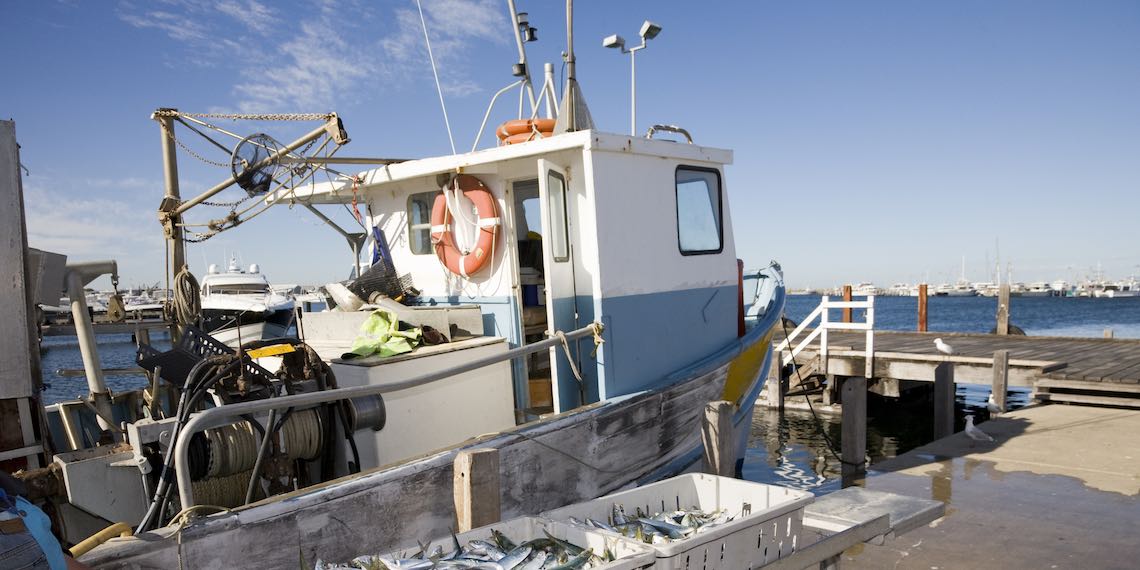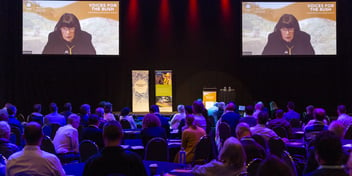CRC bid hones in on supporting Indigenous economic participation and development

Water Research Australia (WaterRA) is backing the renewed bid to establish an Indigenous-led Cooperative Research Centre (CRC) dedicated to sustainable and productive land and waterscapes to enable Indigenous economic participation and development.
The Economic Participation of Indigenous Communities CRC (EPIC CRC) aims to develop an internationally competitive, dynamic and growing First Food agribusiness and fisheries sector built on Indigenous principles of sustainability and ecosystem thinking.
The EPIC CRC bid’s leadership team includes Acting CEO Dr Phil Duncan, Research Co-Directors Associate Professor Brad Moggridge and Professor Steve Larkin, and Professor Ross Thompson.
WaterRA CEO Karen Rouse said the EPIC CRC partnerships from across many sectors are essential to achieving successful and lasting outcomes for Indigenous and Torres Strait Islander businesses, right across Australia.
“Access to quality water and land are fundamental to our collective aspirations, as well as the development of new knowledge and approaches that enable Indigenous principles of sustainability and ecosystem thinking to guide the plans and policies by which land and water are managed in Australia and the Torres Strait Islands,” she said.
“Ultimately, healthy lands and waters are the basis for sound and sustainable economic development of our nation as a whole. Aboriginal communities already have a wealth of knowledge on how to turn these riches into sustainable economic endeavours.
“The EPIC CRC is geared up to provide a ‘Two-Eyed Seeing’ research approach, to draw upon the strengths of both Indigenous and non-Indigenous knowledge.
“As an industry, we are grappling with a rapidly changing climate and our role in reconciliation. So there's much we can learn and do by listening to and being guided by the wisdom, knowledge, and practices of the Traditional Owners of this country.”
EPIC CRC Acting CEO and Gomeroi man Dr Phil Duncan said EPIC CRC is about working together to develop initiatives that bolster small and medium Indigenous businesses.
“The rural sector has been good to me and to my great, great grandfather. It’s been good to me and my family, and beyond my family, for a long time,” he said.
“There is a wonderful window of opportunity now through EPIC for stronger collaboration, and credible research-based research initiatives that link industry with Indigenous communities around small and medium enterprises.
“Increasing that network with WaterRA and its partners is significant for us because I believe there is a wonderful future in outcomes. For me and our EPIC team, a boutique focus is important to laying the foundations for a strong platform to spring forward from.”
“We are only limited by our imagination. We've got a blank canvas in front of us. I'm excited about what each and every one of our partners’ marks will look like on that canvas and reaching the final mural of success.”
Duncan said EPIC CRC presents a wonderful opportunity for governments, industry and researchers to come together and collaborate with and for Indigenous Peoples and communities to make a significant difference.
“It’s about empowering Indigenous communities via building their capacity and resilience, and to have these communities as a source of decision makers on the platform of self determination, inclusion and respect,” he said.
“I strongly believe that EPIC is the very vehicle to drive this change and move forward under the guidance of Indigenous communities.”
Indigenous worldview approach
Professor Ross Thompson said it is crucial that the CRC is Indigenous-led, and that the approach to ensuring the success of Indigenous businesses is one that embeds Indigenous worldviews.
“The EPIC CRC comes from an aspiration for Indigenous access and renewed access to Country, whether that be land, freshwater or sea Country. This is the basis for partnerships that engage cultural, economic, environmental, and social impact for Indigenous people,” he said.
“We are clear in developing our mission and our vision that we benefit collectively from taking an Indigenous worldview here. You can't have management of Country that doesn't engage with social and cultural aspects, too.”
“If we want to have economic outcomes, we are going to have to address social, cultural and environmental issues. This holistic way of thinking is deeply embedded in the Indigenous psyche.”
Thompson said this holistic approach is central to the EPIC CRC: “I call it an ecosystem approach because of my particular focus. But others might call it a systems approach, or a social ecological economic system.”
“However we choose to name it, the important point is that our approach doesn't treat any of those outcomes as separate entities,” he said.
“We are aware of the scale of the challenge ahead of us. But the challenge will not get any smaller by not engaging with it.”
Land and water
Thompson said the CRC will be structured around two key problem-based program areas.
“One of them is a suite of activity around economic opportunities on Indigenous land. This program will focus on things like carbon farming, first foods and first grains programs on Indigenous lands, for example,” he said.
“The other program area is for water. The focus there will be things like blue carbon aquaculture, the potential for engagement in water markets, both freshwater and marine environments.”
Cutting across the land and water programs will be to further programs of work for enabling success for Indigenous businesses in these areas, Thompson said.
“Our partners have told us there is a real gap in terms of how to safely engage with Indigenous IP and ensure that Indigenous people are not forced out of any business that emerges afterwards,” he said.
“So this is certainly a focus area, to ensure that all engagement and knowledge sharing is culturally appropriate and safe.”
Thompson said the final theme for the CRC is about unlocking economic potential, which will focus on things like supply chains and food-handling and transport training.
Meaningful connection
Thompson said the EPIC CRC has been structured to reflect the challenges that still need to be overcome on the journey toward supporting successful Indigenous businesses everywhere across Australia – and the solution is strong and genuine relationships.
“We need to have profound relationships with Indigenous small and medium enterprises, and work to understand both the limitations and the opportunities of those enterprises, and the research that’s still needed to unlock the opportunities,” he said.
In order to do this, the EPIC CRC will take a very strong focus on case studies and place-based research, Thompson said.
“We will be focused on case studies from right around the country. We won't be utilising a huge number of case studies, because we want to ensure that the case studies we use are based on a real and trusted history of conversation and connection,” he said.
“We will largely be basing ourselves around existing case studies where there's very mature relationships or very strong emerging relationships.”
Thompson said the case studies will be utilised to test solutions and to extract generalisations from successful work that has gone before.
“We will then pull those together in a way that we hope really enables Indigenous engagement and participation in economies,” he said.
Learn more about the EPIC CRC here. Water sector organisations that would like to be part of EPIC CRC are welcome to join WaterRA’s consortium. Please contact WaterRA’s General Manager Research Services Jacqueline Frizenschaf or approach the EPIC CRC directly.


